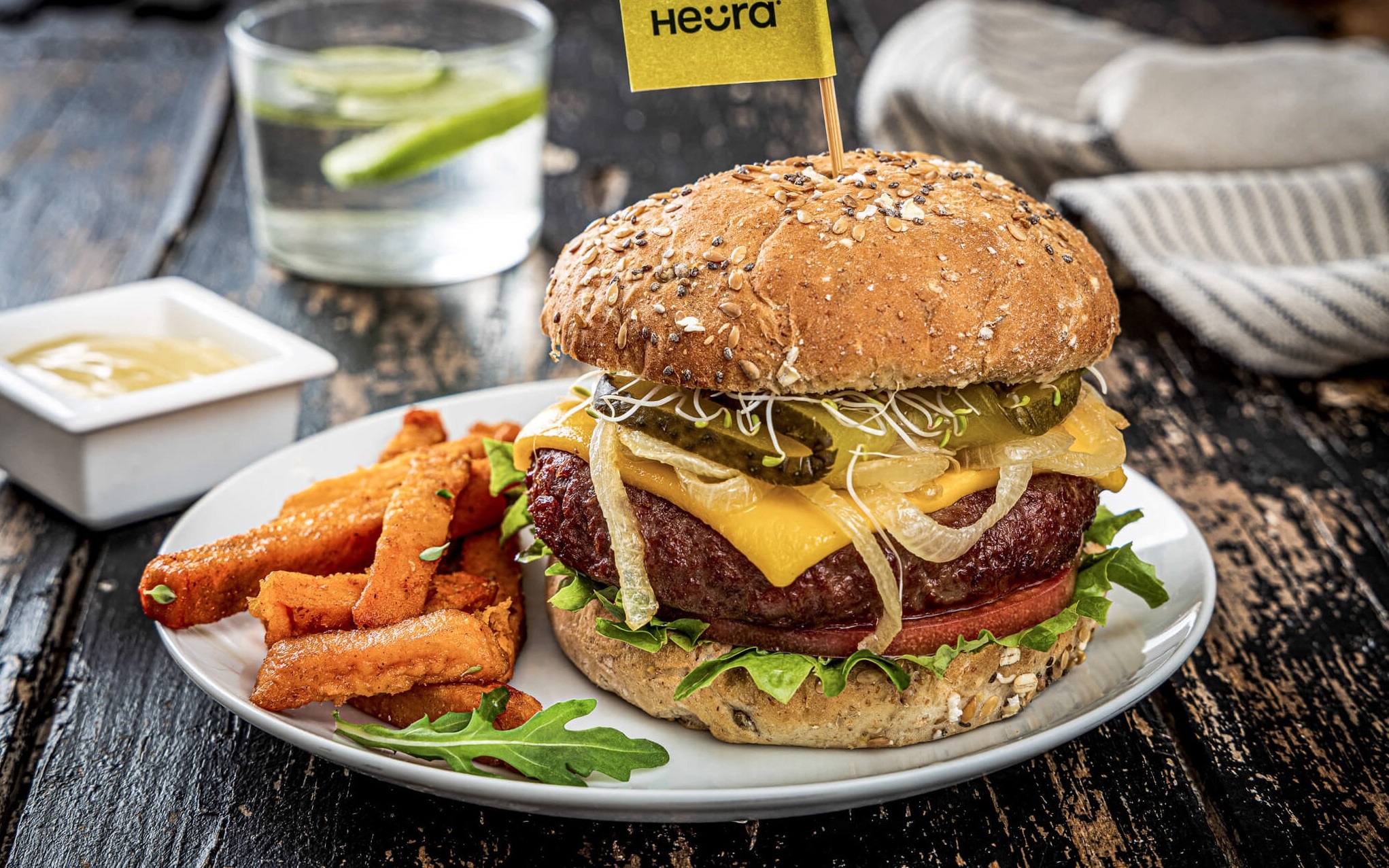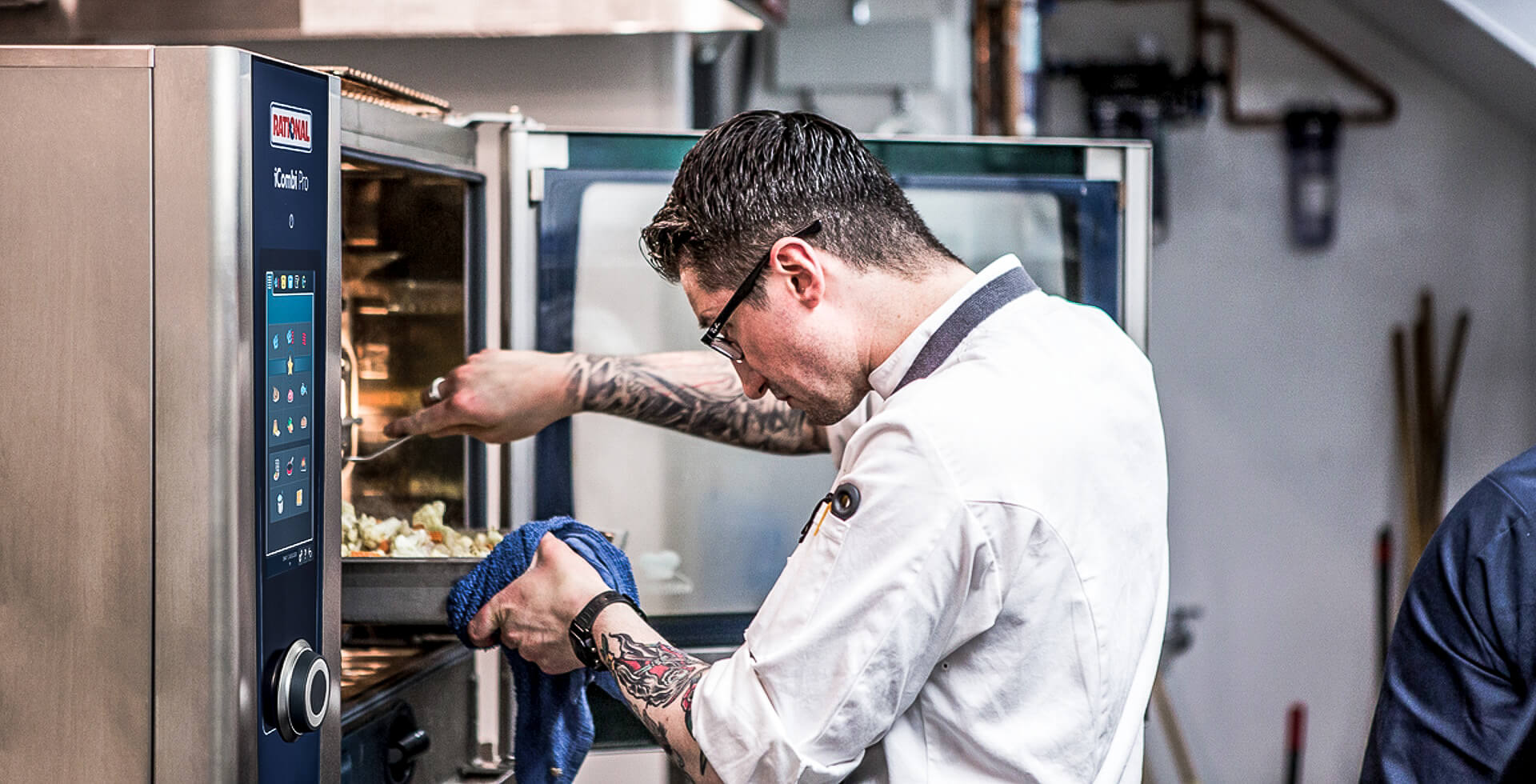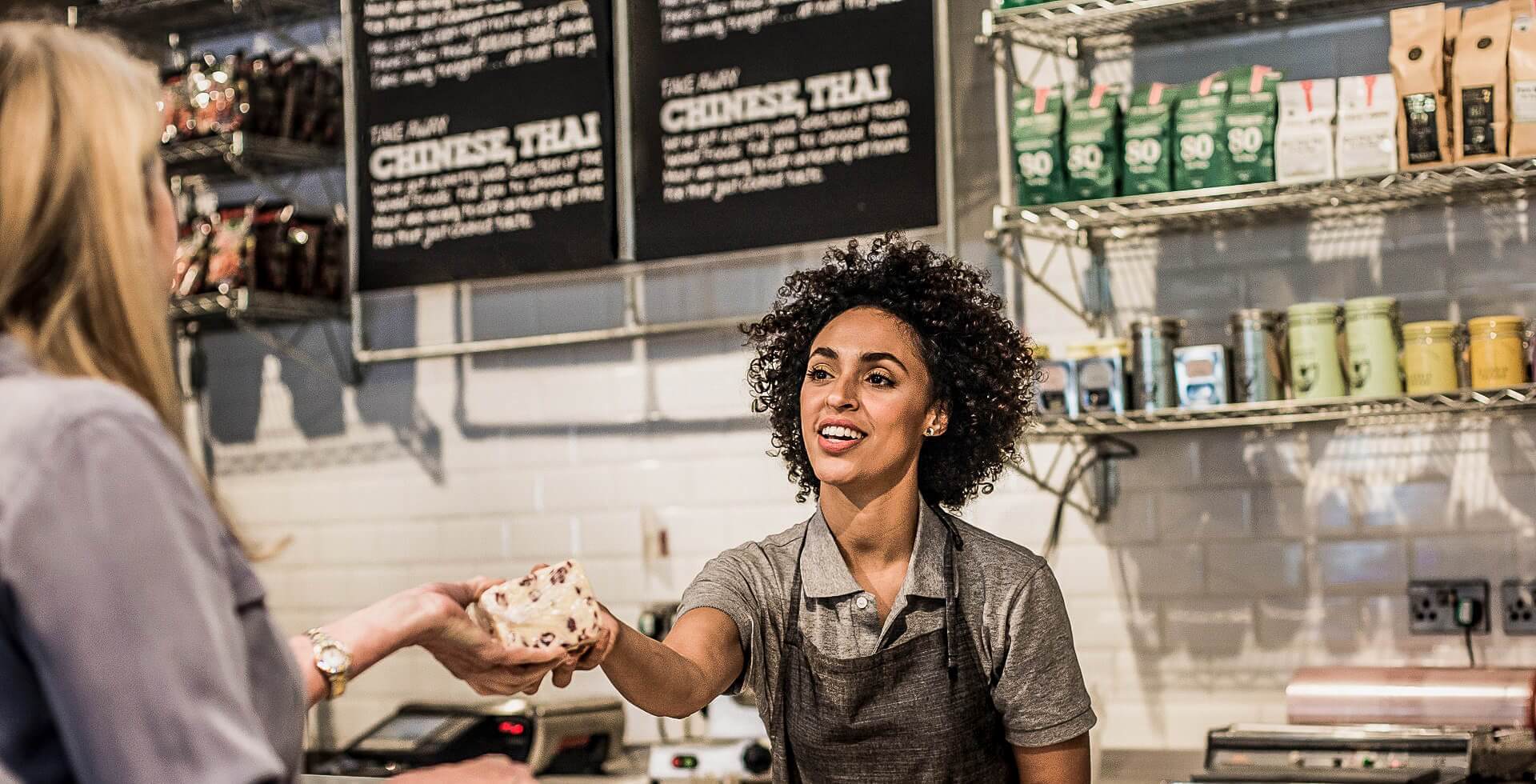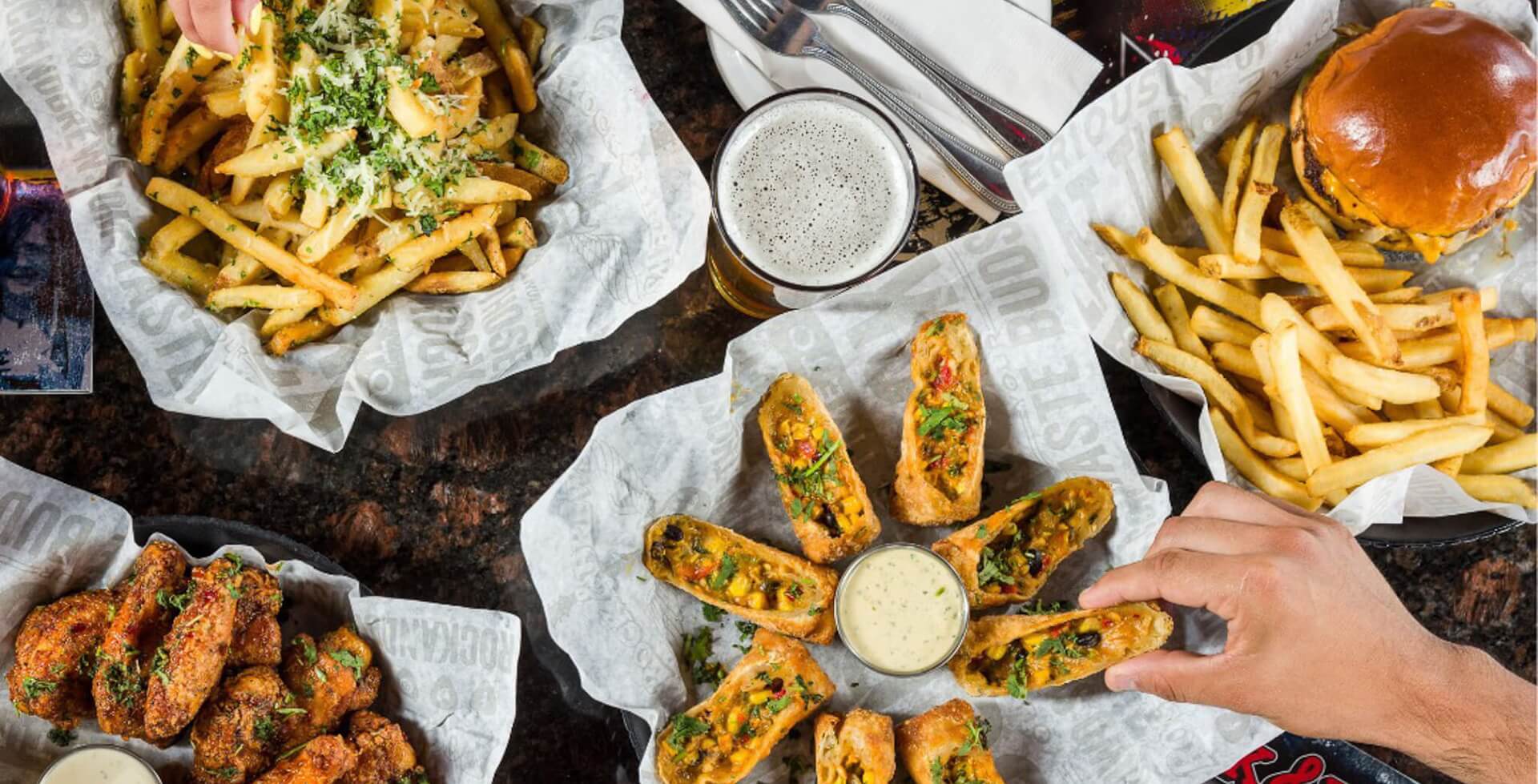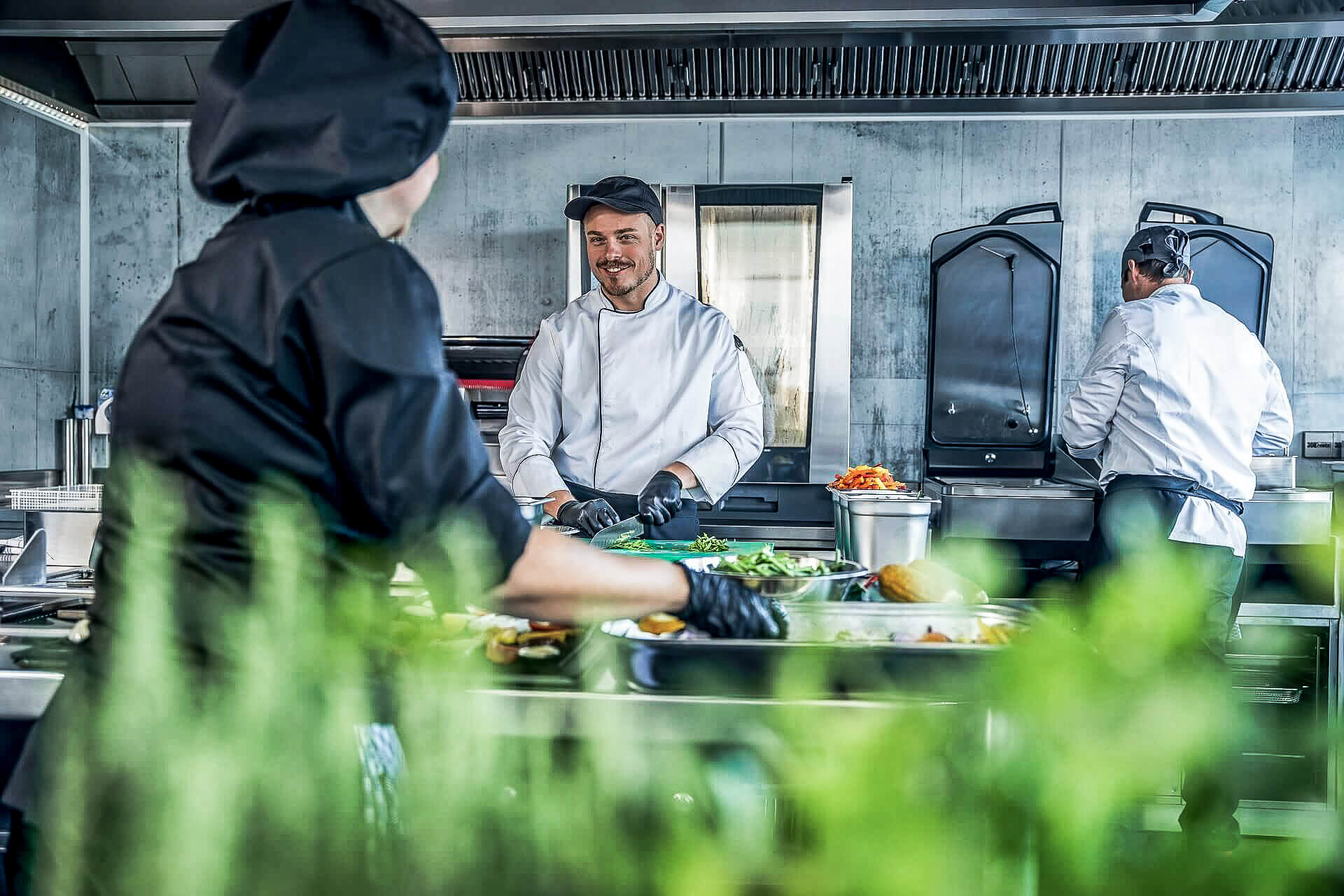Plant-based has long been the number one watch word in foodservice. It’s become an unmissable trend that keeps on rising as diners make a concerted effort to reduce meat consumption, some due to health reasons and others because they want to make a difference to the environment.
According to the Plant Based Foods Association, the plant-based foods market grew by 11.4% in 2019, compared to the retail food market growing by 2.2%. The Covid-19 pandemic and the accompanying concern for better health, is likely to have accelerated an already fast-developing trend – in the US, the plant-based meat industry saw sales surge 264% in the nine weeks to May 2, according to Bloomberg.
One concrete example from recent years is that of British baker Greggs introducing a vegan sausage roll, filled with Quorn – after launch of the product, their share price jumped 13% and profits rose by 11%.

Plant based meat / Image: Impossible Foods
Raising standards
Where once a vegetarian diet meant vegetables, pulses and soya-based protein – few vegetarians will have forgotten the bad old days when the one dish suitable for them on a menu consisted of roasted aubergine or mushroom Wellington – today a meat-free lifestyle offers an exciting range of products, wherever you choose to eat.
The bar has been raised for these products, no operator can get away with serving products that are not up the expected standards, particularly in products such as burgers where an increasing number of companies are attempting to come up with the best plant-based version.
This point about quality is the focus of Barcelona’s Heura, the fastest growing plant-based meat brand in Europe.
Dr Lorena Salcedo, lead food scientist for Heura’s gastronomic lab, says the team is not interested in simply producing meat analogues – products similar to meat with a decent taste but a poor nutritional profile. With the most recent hamburger the team has developed, Heura wants to go beyond simply putting out a plant-based product.
“There are already products on the market that taste good but nutritionally there are the same problems as with meat-based products,” says Salcedo.
“Consider the levels of fat in a meat burger and compare them with those in a plant-based burger – they tend to be aligned.”
The ambition for Heura is to produce a plant-based burger that is not just for weekends or for indulging. “We want our burger to be one that can be enjoyed every day, that consumers take to work or prepare for their children,” says Salcedo.
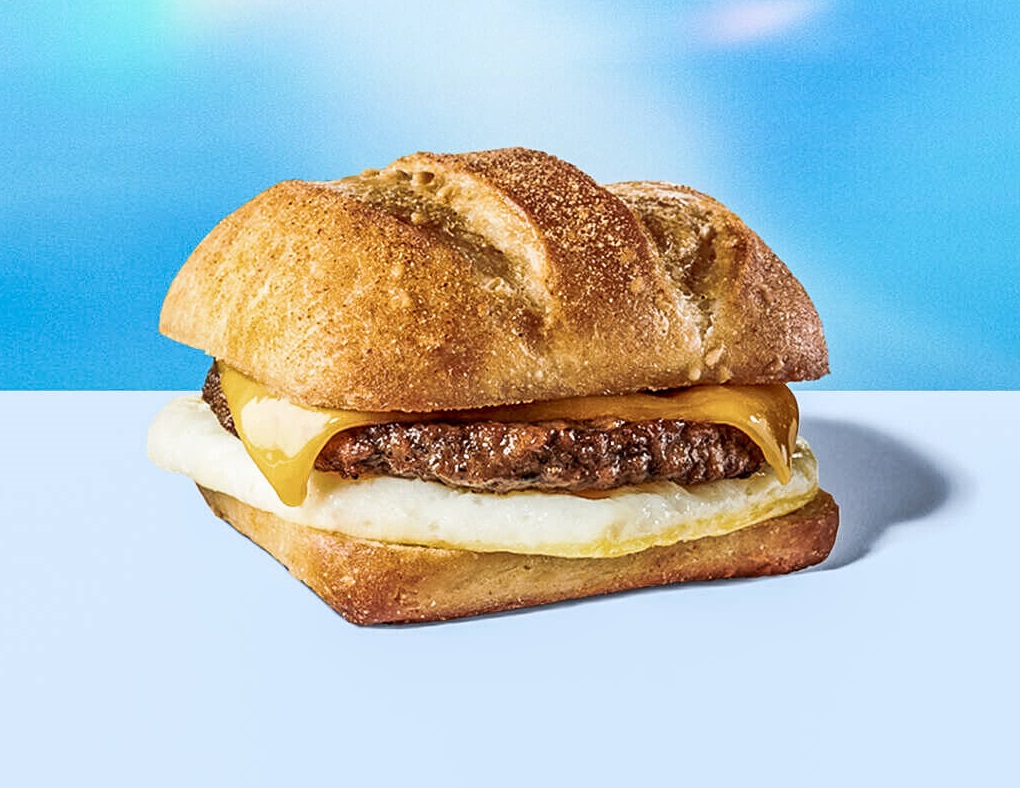
Impossible Breakfast Sandwich / Image: Starbucks
Plant-based options everywhere
Vegetarian and vegan dishes are no longer reduced to sideshows to accompany the main courses of animal protein. High-end restaurants, such as Hakkasan, have launched standalone vegan menus while popular fast food chains have acknowledged the burgeoning demand. In November, McDonald’s announced that it will launch its own McPlant range of plant-based products in 2021 while chicken chain Nando’s added The Great Imitator, a plant-based dish to replicate its famous chicken, to their menus in October.
A meat-free diet is not traditionally linked with luxury, but this is shifting too. Luxury hotel Emerald Maldives Resort & Spa recently announced a change in their F&B program. “Since opening the resort in 2019, we have seen more of a demand from our guests for really healthy, plant-based food, so we have enjoyed adapting the menu to fit this trend,” said general manager Srikanth Devarapalli.
“Travelers generally seem more health conscious than they used to be and going on holiday now doesn’t necessarily mean changing your diet – it is a lifestyle movement.”
It is, of course, big business. Barclays Bank forecasts that consumption of meat alternatives might be worth $140bn by 2029. It shows in the market movement – manufacturers of plant-based products are thriving. In 2020 Impossible Foods that famously worked with Burger King to launch the Impossible Whopper, was valued at $4bn last year and went on to raise $500m in funding during the pandemic. Earlier this year Starbucks started offering the Impossible Sausage sandwich to customers in US stores.
Last year, Beyond Meat, another big hitter which has pioneered the plant-based Beyond Burger, went public at a valuation of $1.5bn and has gone from strength to strength working with big names in foodservice. Most recently it has been pushing further into Asia. Over the course of 2020 it has announced partnerships with Starbucks, KFC, Pizza hut and Taco bell in China.
Changing popular opinion
Spain, a traditionally conservative foodservice market, according to Salcedo – “Usually companies make the big moves once a trend is established,” – has taken some time to acknowledge the plant-based trend.
The Heura team has used social media to great affect in order to spread the message – some linking with big names of the soccer world in La Liga – about the benefits of plant-based meat alternatives – one boasting the water (1.643 liters) and co2 emissions (6.3kg) saved.
Recently, one of their trademark campaigns provoked the ire of Spain’s meat industry associations. Featuring huge billboards stating the detrimental impact of the livestock industry on the environment, the campaign went viral and Heura soon faced lawsuits from the meat producers, causing them to take down the billboard.
This is not the only or first time that traditional meat producers have been unsettled by the plant-based sector. Earlier this year, farming and meat lobbyists, including Copa-Cogeca, the trade body for European farmers asked the European Parliament to ban ‘meaty’ terms for plant-based foods, arguing that it was misleading to consumers who may think plant-based burgers or sausages were actually meat. The European Parliament voted down the request, a decision that was welcomed by The European Consumer Organization. “Consumers are in no way confused by a soy steak or chickpea-based sausage, so long as it is clearly labeled as vegetarian or vegan,” it said in a statement.
If you can’t beat them, join them – just as the major foodservice operators have embraced the trend for meat-free diets, so have some of the major traditional meat manufacturers – rather than fight or sue the trend they have decided to acknowledge the direction of travel and get involved. Tyson Foods in the US, one of the world’s biggest meat producers, took a significant stake in Beyond Meat around 2016, having recognized a genuine shift in the market. Tyson since went on to sell its stake in 2019 before launching its own Raised and Rooted range of plant-based protein products.
Beyond plant-based
While consumers around the world today expect – demand even – vegetarian and vegan options on the menu, no matter where they eat, the next level in this process involves stepping into a lab setting.
Lab-grown meats are already part of the mainstream conversation and have grown exponentially in recent years due to the expected benefits for the environment. Eat Just, a company that applies cutting-edge science and technology to create healthier, more sustainable foods and so far was known for launching plant-based eggs, announced that its cultured chicken has been approved for sale in Singapore as an ingredient in chicken bites.
“The first-in-the-world regulatory allowance of real, high-quality meat created directly from animal cells for safe human consumption paves the way for a forthcoming small-scale commercial launch in Singapore of Eat Just’s new GOOD Meat brand, details for which will be disclosed at a later date,” the company said in a statement. And the market for lab-grown meats is getting crowded. Cellular agriculture pioneer Memphis Meats raised $161m this year and a restaurant opened in Israel, serving lab-grown chicken.
So often on the front foot of implementing new technology within its restaurants, fast food chain KFC announced in the summer that it was working on lab-grown chicken using 3D printing technology with the intention to launch in KFC Russia restaurants.
“At KFC, we are closely monitoring all of the latest trends and innovations and doing our best to keep up with the times by introducing advanced technologies to our restaurant networks,”
said Raisa Polyakova, general manager of KFC Russia & CIS.
“Crafted meat products are the next step in the development of our ‘restaurant of the future’ concept. Our experiment in testing 3D bioprinting technology to create chicken products can also help address several looming global problems. We are glad to contribute to its development and are working to make it available to thousands of people in Russia and, if possible, around the world.”
An increased awareness of the urgent need to reduce climate change combined with a much better educated and refined dining public have helped the explosion in plant-based products, a market that seems set still to grow further. If this interest is sustained it is likely that the next level will take off with even more force once consumers get their head around the concept of getting their meat from a lab rather than a farm.


